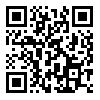BibTeX | RIS | EndNote | Medlars | ProCite | Reference Manager | RefWorks
Send citation to:
URL: http://ehj.ssu.ac.ir/article-1-52-en.html
Introduction: Women are facing inequalities including health, thus their health deserves attention. Investigating people’s health status from their viewpoints is an important measure in terms of public health of society and an indicator to determine the efficiency of health system. This study aimed at evaluating the self-assessed health of older women living in Shiraz and Yasuj.
Methods: This was a cross-sectional study on elderly females over 65 years living in Shiraz and Yasuj. A questionnaire was applied to collect data from 380 subjects who were selected by cluster random sampling method. Data analysis was performed through SPSS software in two levels of descriptive and inferential.
Results: The mean score of total self-assessed health was 72.02 ± 13.6, and 63.8% evaluated their health status as moderate. The mean scores for physical health, anxiety, social function, and depression subscales were 14.52 ± 4.97, 18.02 ± 5.77, 18.29 ± 4.48, 21.11 ±4.27, respectively. Age, education, marital status, disease history, and self-esteem were significantly associated with self-assessed health. R2 determination coefficient also indicates that 31.8% of changes in self-assessed health scores are explained by self-esteem, disease history, education, and marital status.
Conclusion: Infrastructure to maintain the traditional values in the field of social relations and strengthen the family ties between the elderly and their family members can increase their self-esteem by reducing social isolation, and help them improve their health, especially in psychological dimension.
Received: 2016/03/5 | Accepted: 2016/05/15 | Published: 2016/06/29
| Rights and permissions | |
 |
This work is licensed under a Creative Commons Attribution-NonCommercial 4.0 International License. |






